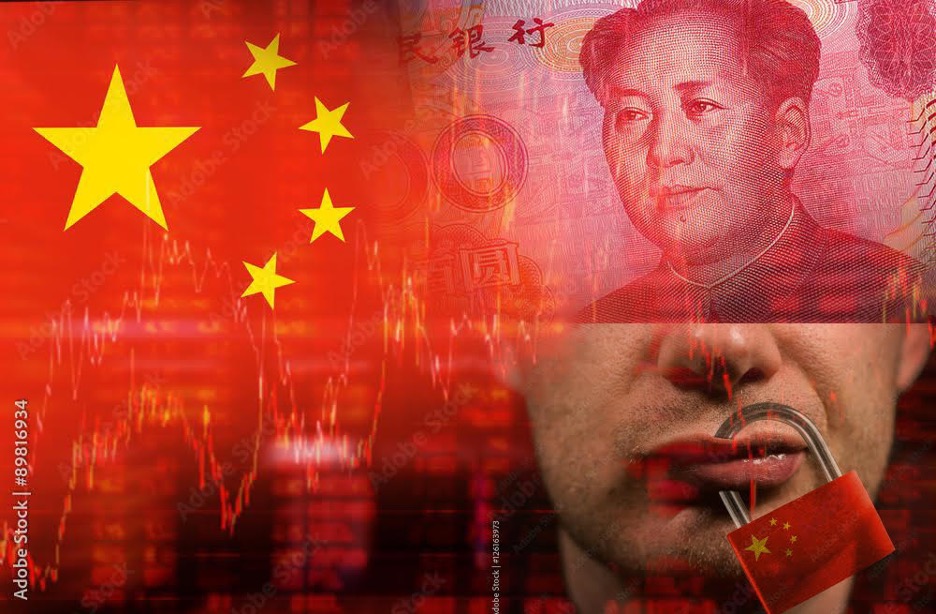What’s happening
Economic downturns can lead to authoritarianism in 2023. The global economy is facing a number of challenges, including the COVID-19 pandemic, the war in Ukraine, and rising inflation. These challenges are likely to lead to economic hardship for many people, creating an environment in which authoritarian leaders can thrive. The rise of authoritarianism is a worrying trend. China, Russia, Turkey, and Hungary are all authoritarian countries with a track record of suppressing dissent and restricting freedom of expression. However, the key differences between these countries that make China more dangerous are its large population, major economic and military powers, and ambitions. In contrast, Russia, Turkey, and Hungary are all much smaller countries with less economic, military, and political power. They are also more focused on their own internal affairs than on challenging the status quo.
What’s causing this to happen
Historical patterns will help identify and understand the underlying issues. The Great Depression (1929-1939) was a global economic crisis that led to widespread unemployment, poverty, and social unrest. Adolf Hitler came to power in Germany in 1933. More recently, during the global financial crisis (2008-2009), widespread economic hardship was experienced around the world. Viktor Yanukovych was elected president of Ukraine from 2010 to 2014, and Recep Tayyip Erdoğan became president of Turkey in 2014. Yanukovych was a pro-Russian leader who was accused of corruption, human rights abuses, and suppressing dissent. Erdoğan is a conservative Islamist leader who has been accused of consolidating power, cracking down on dissent, and undermining democracy, and criticized for his government’s handling of the Syrian refugee crisis.
Chinese President Xi Jinping rules more like a stern authoritarian monarch, with some Chinese people calling Xi “emperor” in private. He gained power by using an anti-corruption campaign to purge hundreds of senior party officials. He cracked down on the private sector, sending many of China’s top entrepreneurs into early retirement or self-imposed exile. Critics say he is using this as a pretext to purge his political rivals. He waged a brutal crackdown on Hong Kong’s pro-democracy protesters.
The Chinese government has a long history of using economic downturns as an excuse to crack down on dissent. Early pro-democracy protests in Tiananmen Square were put down by the government in the early 1990s; following the Asian financial crisis in the early 2000s, labor protests were cracked down. Additionally, the government has pushed back on protests over environmental issues and other grievances in recent years.
He built a surveillance state with state-of-the-art AI technologies and numerous cameras. Even as the threat from COVID has eased, President Xi has insisted on the strict policy known as zero COVID. Censorship has grown stronger. The government has blocked access to websites and social media platforms that it deems to be “harmful” or “subversive.” It has very strict control over the media and the internet, and people who speak out against the government are often arrested or imprisoned. This is part of a broader effort to control the flow of information and prevent dissent.
President Xi was re-elected as general secretary of the Communist Party of China (CPC) and also as chairman of the Central Military Commission (CMC). The general secretary of the CPC does not usually hold the position of the CMC, which is the highest ranking body in the Chinese military. This gives him even more control over the Chinese government and military, a sign of his growing authoritarianism. His critics call him a dictator who is eroding China’s democracy and human rights.
What could happen next
If President Xi continues on his path as an authoritarian, he could further restrict freedom of expression and human rights. This would make it more difficult for people to speak out against the government and organize for change. This social unrest could lead to protests, strikes, and even violence. Resulting in eroding human rights and democracy in China. Authoritarian governments often stifle economic growth by discouraging innovation and entrepreneurship. They are more concerned with maintaining control than with promoting economic growth, leading to a slowdown in economic growth in China. President Xi has already shown a willingness to challenge the US and its allies on a number of issues, including trade, human rights, and security. He is likely to become even more assertive on the world stage and less willing to cooperate with other countries, increasing global political tensions and conflicts.
The US and other Western countries can build alliances with other countries that are concerned about China’s growing power. This could help deter China from taking aggressive actions and make it more difficult for China to achieve its goals. Countries can support democracy and human rights in China by providing financial and logistical support to pro-democracy groups. By using their influence, they can try to get China to release political prisoners and respect the rule of law. Try to diplomatically interact with China and influence it to change its course. This could involve talks, sanctions, or other measures
Sources :
- The Global Expansion of Authoritarian Rule https://freedomhouse.org/report/freedom-world/2022/global-expansion-authoritarian-rule
- Breaking Down Democracy https://freedomhouse.org/report/special-report/2017/breaking-down-democracy
- Xi Jinping vs the People https://www.nytimes.com/2022/10/28/briefing/xi-jinping-china-authoritarian.html
- Uncle Xi’ to Exalted Ruler: China’s Leader Embodies His Authoritarian Era https://www.nytimes.com/2022/10/14/world/asia/china-xi-jinping-communist-party.html


